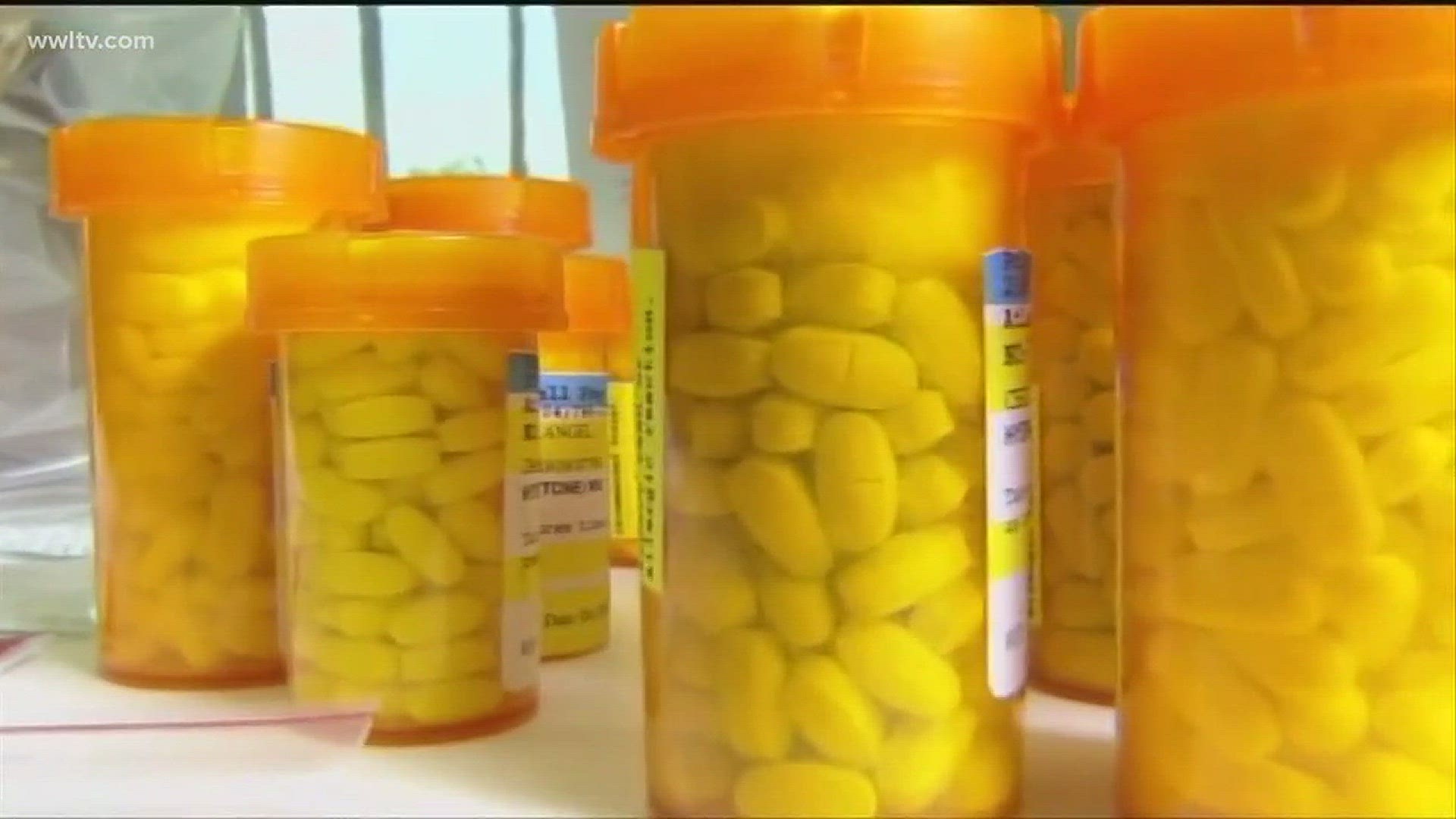America's opioid crisis isn't just claiming lives, it's also costing local governments millions to try to fight it.
On Wednesday, the city of New Orleans will consider following several other parishes in filing suit against more than a dozen drug companies. The lawsuits, including one filed by the state, claim the companies have flooded Louisiana with opiods to boost their profits.
The opioid addiction epidemic is hitting the bottom line of federal, state, and local governments. The Jefferson Parish coroner's office is one of many.
"We're impacted by the fact we do the death investigations of all these overdoses, and those numbers have skyrocketed for us in the last few years," said Dr. Gerry Cvitanovich, the Jefferson Parish Coroner, who is also an urgent care physician.
Dr. Cvitanovich says there's a noticeable hit on the budget.
"We have increased number of autopsies, that means we have more supplies, more overhead, more payroll issues, so it hits us at multiple locations," he added.
But he says his budget increases pale in comparison to the tremendous costs to public health care, EMS, the judicial system and police, who are now being trained to give Narcan, the medication that can help someone who has overdosed breath again.
"Narcan's not cheap, so the training, the cost of that is huge, and then they got to write reports. Every time there's an overdose death, the police are there," said Dr. Cvitanovich.
He's not confident his office will ever see reimbursement from the state suing pharmaceutical companies.
"They generally do take many many years to get through the court system," explained WWL-TV Legal Analyst Pauline Hardin.
She says there are challenges to winning.
"The states have been successful in things like the tobacco litigation, but they've been unsuccessful in other cases such as those involving gun manufacturers," said Hardin.
But it may help the case that other states are suing too.
"I think it's helpful because it puts a lot of pressure on the pharmaceutical companies," she said.
"There's probably a whole lot of blame to go around and I just want it to stop," said Dr. Cvitanovich.
A full statement from the Pharmaceutical Research and Manufacturers of America about the lawsuits is below:
However, on the broader issue, PhRMA is strongly committed to working with health care stakeholders, policymakers and others to help address the current opioid crisis. As such, we have developed an extensive set of policy recommendations for this multifaceted problem.
We are also working with the NIH, the FDA and the President’s Commission on Combating Drug Addiction and the Opioid Crisis to develop a public-private partnership that will accelerate the development of non-opioid pain medications and new formulations of medication assisted treatment for addiction recovery.
Additionally, in September PhRMA’s CEO, Stephen Ubl announced for the first time that PhRMA supports policies limiting the supply of opioids to 7 days for acute pain. Below is the release, which includes a statement from Ubl. This is a significant step for the biopharmaceutical industry.Nicholas C. McGee
Director, Public Affairs, PhRMA

